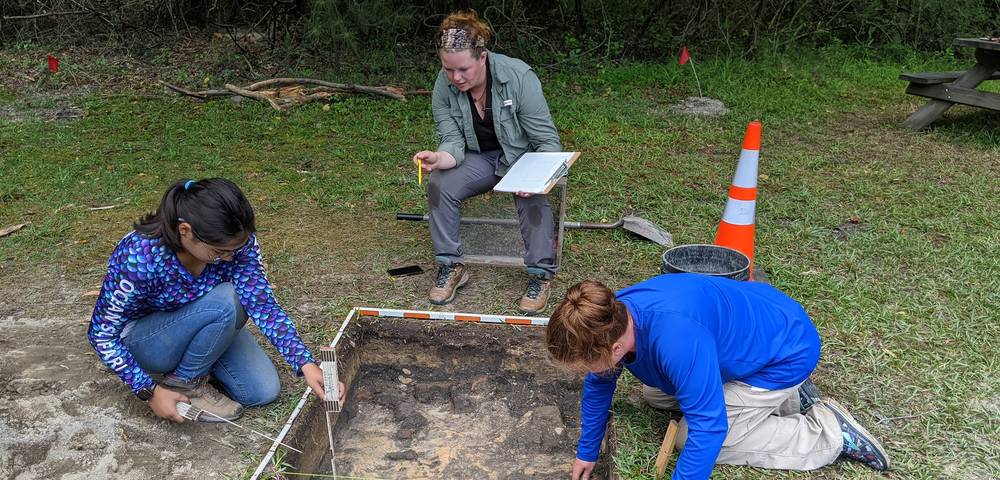Through research and hands-on learning in archaeology and biological, cultural and linguistic anthropology, we train students to explore human diversity and make a difference in the world. By studying human history through identity, society and well-being, our students learn to lead with an understanding of diversity, justice and human connection.
-
Academics
Earn a B.A., M.A., Ph.D., minor, cognate or certificate in anthropology’s four fields—archaeology, cultural, linguistic and biological—and build skills in research, communication and critical thinking.
-
Research
Our faculty lead discoveries in areas ranging from forensic recovery and public archaeology to medical anthropology and human diversity.
-
Our People
Work with faculty across fields of study, including many who have received the Mungo Teaching Award for excellence in mentoring and instruction.

Hands-on discovery
Anthropology thrives beyond the classroom. Gain hands-on experience in excavation, lab analysis, cultural immersion and museum collections through fieldwork, study abroad and collaborations with centers and institutes.
Fieldwork OpportunitiesDepartment News
-
Lessons from ancient farmers on climate adaptation
Assistant professor of anthropology Chelsea Fisher shows how archaeology reveals how ancient farmers survived droughts with practices like milpa and small-scale irrigation — and how political power and land access still shape climate resilience.
-
Anthropologist studies neglect in institutions
USC anthropologist Carlina de la Cova examines the remains of people who died in public hospitals more than a century ago. Her research highlights structural neglect of the elderly and mentally ill, connecting past injustices to present concerns.
-
Anthropologist urges safer radiation policies
Hundreds of thousands live near former nuclear test sites and face exposure to radioactive waste, raising cancer risks. USC anthropologist Magdalena Stawkowski works to improve policies that protect communities in these radiation zones.









